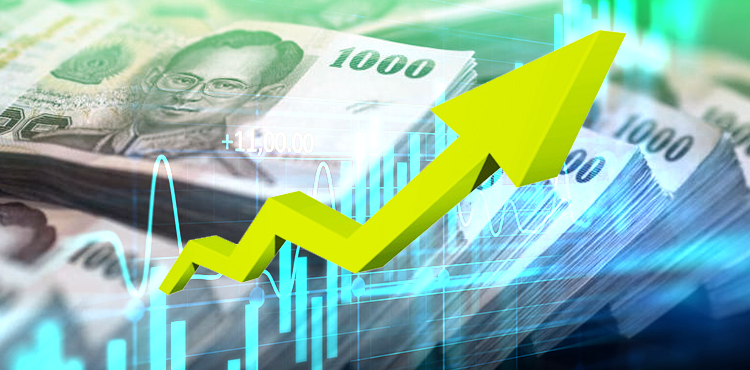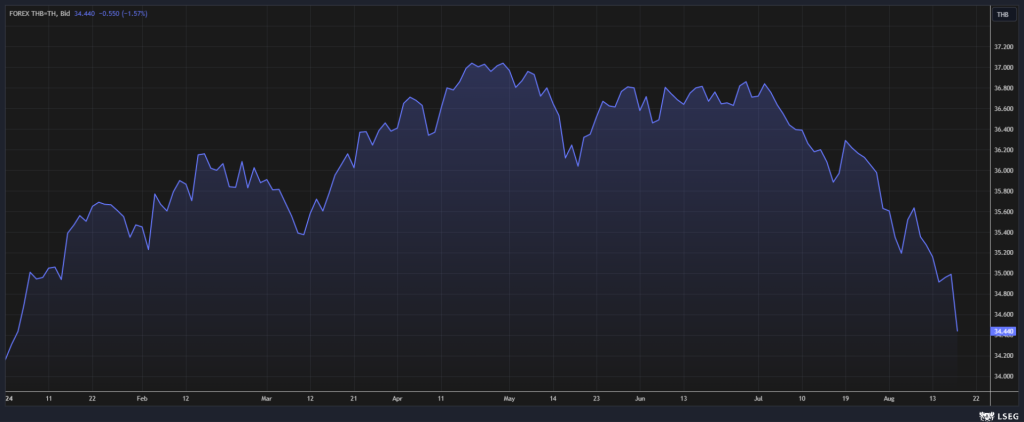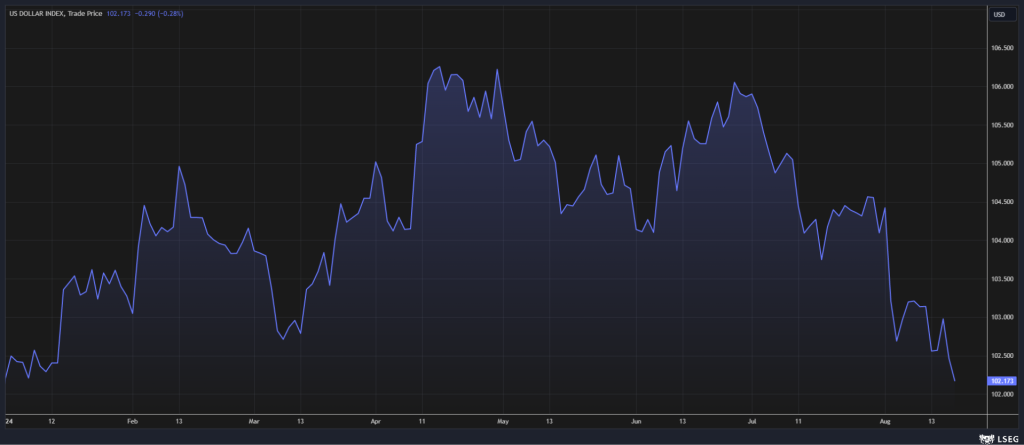Thai baht has been surging to its strongest level against the greenback since January this year amid speculation of a Federal rate cut this upcoming September, following easing concerns over US recession after a report of positive economic data last week.
Thai baht is now trading around 34.43 baht per one dollar, which is a significant development from its previous low of over 37 baht in April.
The dollar index, which is an indicator of the US dollar against other major currencies, is also hitting its 7-month low as well.
The US dollar weakened on Monday, as investors anticipated a dovish outlook from the Federal Reserve and awaited Chair Jerome Powell’s speech at Jackson Hole.
Currently, traders are indicating a probability of approximately 28% for a 50 basis points rate cut in the upcoming month, with expectations of around 95 basis points in total rate cuts by the end of the year. These figures have slightly decreased following the latest US CPI report. Nevertheless, despite these adjustments, the US dollar continues to weaken in anticipation of an impending rate cut.
Meanwhile, MSCI emerging market currency index had just hit its fresh record high at 1,759.
Daol Securities noted in the analysis that the several listed companies in the Thai stock market are expected to benefit from the strengthening baht. These stocks include:
Airlines such as AAV and BA, which have a cost structure mostly in US dollars and a strong baht would reduce costs. For AAV, having debts in US dollars amounting to approximately 1 billion USD would result in around 1 billion baht in unrealized FX gains for every strengthening of one baht against the dollar.
Power plant groups due to their borrowing in US dollars leads to recording unrealized FX gains. However, these entries are purely accounting and do not impact cash flows. Stocks impacted by this include GULF, BGRIM, GPSC, RATCH, and GUNKUL.
Energy group, due to positive net exposure to USD against THB, resulting in potential unrealized FX gains for PTTGC, TOP, IVL, while the impact on PTTEP and SPRC may be limited due to using USD as the functional currency.
Lastly, IT distribution, such as SYNEX and SIS, as they import goods using US dollars. A stronger baht would positively impact costs.







